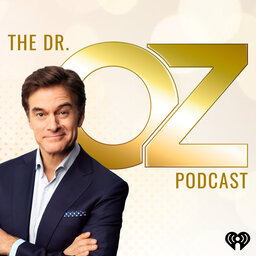Dr. Steven Gundry on the Secrets of Longevity
Is there really a fountain of youth? Well, not exactly… but renowned cardiothoracic surgeon Dr. Steven Gundry has come pretty close to cracking the code to living longer and healthier. In this interview, he’s pulling back the curtain on the secrets of those who look and feel young at any age, and what everyone can do starting right now. He's the author of the book "The Longevity Paradox: How to Die Young at a Ripe Old Age."
Learn more about your ad-choices at https://www.iheartpodcastnetwork.com
In 1 playlist(s)
AMERICA'S DOCTOR: The Dr. Oz Podcast
Dr. Oz's honest, direct interview style, always anchored in health and wellness, has spotlighted hun…Social links
Follow podcast
Recent clips

What Dr. Oz and Deepak Chopra Have Learned From Each Other
36:27

Dr. Josh Axe on the Power of Collagen
19:44

Dr. Andrew Weil on Matcha Tea and Psychedelics for Depression
20:17
 AMERICA'S DOCTOR: The Dr. Oz Podcast
AMERICA'S DOCTOR: The Dr. Oz Podcast